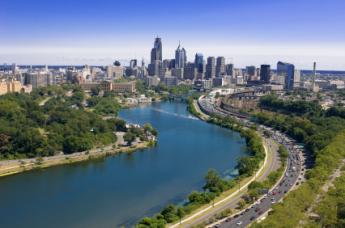Related Topics
Philadelphia, A Running Commentary
A series of observations in and around Philadelphia by notables over the last three and one-half centuries.

Quakers: The Society of Friends
According to an old Quaker joke, the Holy Trinity consists of the fatherhood of God, the brotherhood of man, and the neighborhood of Philadelphia.
Quakers: All Alike, All Different
Quaker doctrines emerge from the stories they tell about each other.
Favorite Reflections
 In no particular order, here are the author's own favorites.
In no particular order, here are the author's own favorites.
Quaker Peace Testimony
New topic 2016-12-04 04:05:49 description
Quakers Turn Their Backs on Power
There have been a number of excellent books about Ben Franklin lately, but all take his side in the dispute with Quakers. These authors relate Franklin struggled with the Quakers, fought with that political party, heroically overcame them with wisdom and guile. Good thing, too, or we all might still be subjects of the British crown.
Well, within the Quaker community these events are viewed differently. Around the year 1755, the Quakers who owned and ran Pennsylvania abruptly turned away from politics and left the government to their political enemies, rather than compromise religious principles. It is difficult to think of any other instance in history when a ruling party decided to become humble subjects of the opposing party, simply because they refused to do what obviously had to be done.
The background of this perplexing issue goes back to the founding of the Quaker colonies, which had lived in a real Utopia for seventy-five years. Repeatedly it had been true that if they just followed the highest principle, things worked out well for everybody. For example, they didn't need to buy the land a second time from the Indians, but they did, with the gratifying result of peaceful co-existence while other colonies experienced constant Indian wars. Penn negotiated the borders of his states with the neighbors, and although it took decades, brought peace and prosperous trade in return. Strict honesty in mercantile matters led to a reputation for trustworthiness, and that in turn led to prosperous commerce. Using a fixed price rather than haggling over price speeded up transactions, gained respect for fair dealing, led to more prosperity. Just you do the right thing, and all will be well. That includes extending freedom of religion, welcoming strangers to the colony to worship together in peace.
Toward the end of this Utopian period, some questions began to arise. More and more non-Quakers came to the colony, making the colony progressively less Quaker. That was a silent disappointment to William Penn. The founder had been a charismatic evangelist for his religion as a youth but came to grave disappointment about peaceful persuasion by the end of his life. Convincing the adherents of other religions of reasonable Quaker principles had often proved to be as intractably difficult as arguing religion with Henry VIII. The Quakers, a religion without a clergy, were appalled that so many adherents of other religions did not concern themselves with earnest reasoning, preferring to do strictly what their ministers told them to do.
Another disconcerting thought was growing within the Quaker community that success itself might be corrupting them. Worldliness seemed to grow inevitably out of wealth and prominence; all power does tend to corrupt. If you are rich, people always seem to steal from you, and that leads to violent punishments, something regrettable in itself. These were not new arguments, but by 1750 nearly a century of success in paradise had begun to stir Pennsylvania Quakers to wonder why more of their neighbors did not ask to become Members. These were troubling concerns of the day which would probably have worked themselves out, except that far-away France and England declared war on each other. The French responded by stirring up the Indians along the Western frontier. Pennsylvania settlers were soon scalped, kidnapped and burned at the stake. Something had to be done about it since protection was a duty of government, and effective protection now had to be non-peaceful. The Quakers dithered. More Scotch-Irish settlers around Pittsburgh were slaughtered. The Quaker meetings sent minutes to the Quakers in the legislature that they must not compromise their peaceful principles, and the Scotch-Irish exploded with rage. The Meetings told their representatives to resign from office, their members to retreat from politics altogether.
So Ben Franklin rose to the occasion, and General Forbes led an army to Fort Duquesne at the forks of Ohio, and Colonel George Washington was the hero of that day. The French were driven off the frontier, the English were victorious at Quebec. North America became a British continent.
Meanwhile, the Quakers retreated into tight-lipped solitude. And self-doubt, because the episode seemed to demonstrate that rigidly peaceful principles cannot govern a state or a nation if that nation contains others unwilling to be sacrificed for peaceful principles. An unthinkable logic emerged; freedom of religion led to conflict with the duty of a non-violent government to protect its citizens. It began to be clear it was the duty of government to enforce its laws, by force if necessary. Underneath the pile of documents, was a gun.
So, the Quakers proudly walked away from power and dominance, for all time. Sadly, too, because the significance was clear. Peaceful utopia may be not possible, within a dangerous world.
Originally published: Friday, June 23, 2006; most-recently modified: Monday, June 03, 2019
| Posted by: cheapostay | Feb 13, 2012 9:42 AM |
| Posted by: esalerugs.com | Feb 13, 2012 9:20 AM |